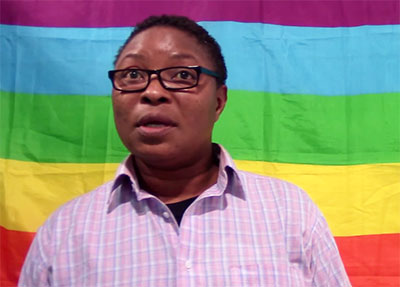UK will no longer ask gay asylum seekers sexually explicit questions

In 2014, Nigerian Aderonke Apata gave UK immigration authorities a sex tape to prove that she is lesbian.
The UK government has announced that people seeking asylum on the basis of their sexual orientation will no longer be asked sexually explicit questions.
The UK has been criticised for making it extraordinarily difficult for LGB asylum seekers from countries where they face persecution to convince officials that they are gay, lesbian or bisexual.
This has included subjecting them to inappropriate and sexually explicit questions.
A 2013 report revealed that a number of gay and lesbian asylum seekers in the UK had even been forced to present “photographic and video evidence of highly personal sexual activity to caseworkers, presenting officers and the judiciary” to “prove” their sexuality.
On Monday, the UK’s Home Office published new guidelines on “how caseworkers should conduct asylum interviews in claims made on the basis of sexual identity.”
“Home Office policy is clear – detailed questioning about claimants’ sexual practices must not be asked and there are no circumstances in which it will be appropriate for the interviewer to instigate questions of a sexually explicit nature,” reads the document.
The guidelines also refer to the December 2014 European Court of Justice ruling that barred the use of degrading tests by EU countries to verify the sexual orientation of lesbian and gay asylum seekers.
The court said that while countries are entitled to question these refugees about their sexual orientation, the proceedings must respect their right to human dignity and their right to respect for privacy and family life.
Paul Dillane, Executive Director of the UK Lesbian and Gay Immigration Group (UKLGIG), welcomed the new UK policy, commenting that it “provides a positive framework in which the asylum claims of lesbian, gay and bisexual asylum seekers can be determined.”
He went on to caution, however, that this is only a first step.
“Now we need implementation: civil servants correctly applying the law and the Home Office’s own instructions. The treatment of LGBTI asylum seekers needs to improve and standards of decision-making need to get better in order to ensure people whose lives are at risk because of their sexual identity are granted refugee protection,” Dillane said.
Leave a Reply